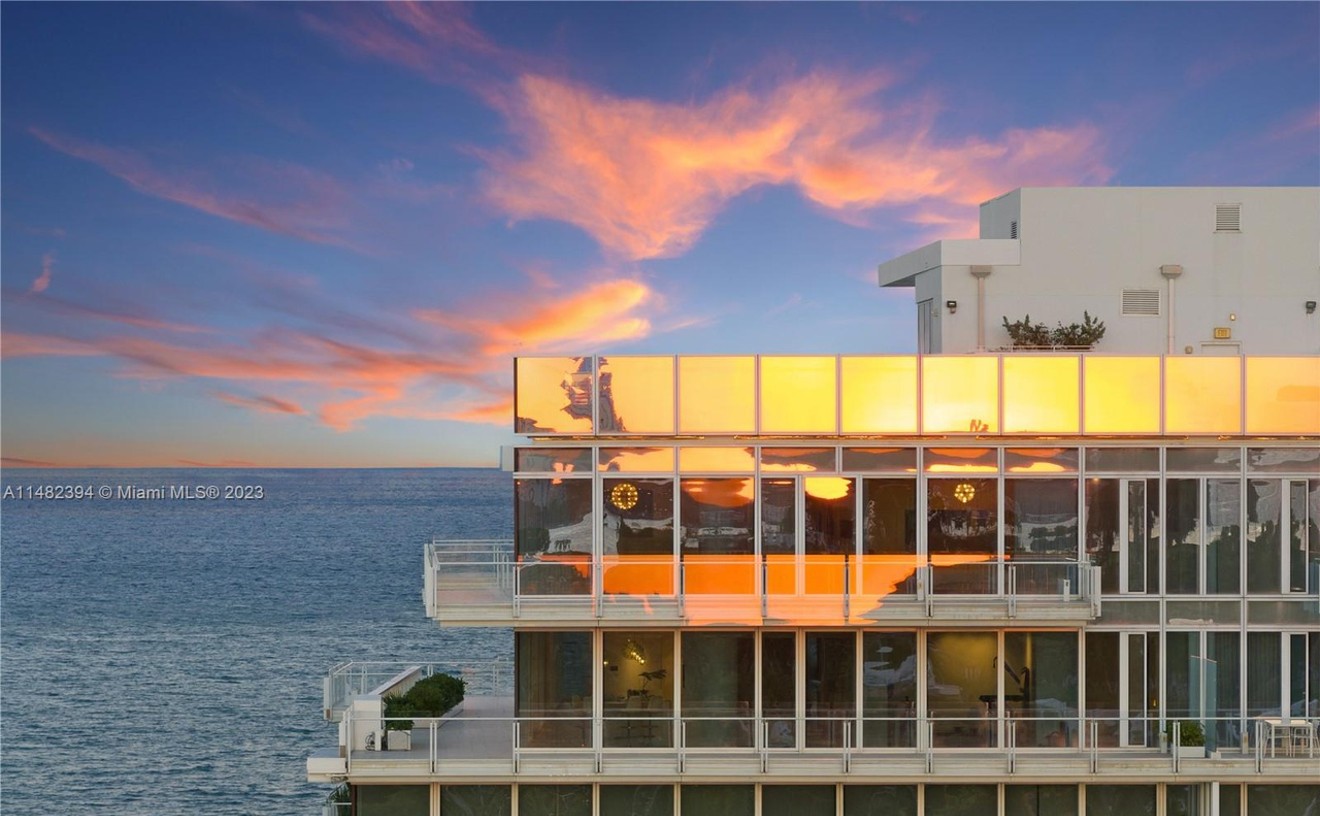So after FPL filed a motion at the beginning of 2018 to renew Turkey Point's operating license for 20 years, potentially keeping the nuclear plant open until 2053, the environmental nonprofit Southern Alliance for Clean Energy (SACE) has filed a legal petition in yet another attempt to finally get rid of the cooling-canal system. The legal filing notes that environmentalists worry about the impact the cooling canals will have in an "increasingly warm climate."
"We are challenging FPL’s proposal to run Turkey Point for far longer than anticipated because the facility is not being properly managed," Stephen A. Smith, SACE's executive director, said today in a media release, which echoed many of the same complaints he's levied at Turkey Point during the past handful of years. “This open industrial sewer is polluting Biscayne Bay and putting critical drinking water supplies at risk today. This unacceptable status quo cannot continue into the 2050s. Thankfully, there are attainable solutions that can correct this FPL-created mess, and it’s long-past time for FPL to do what’s right, fix these wrongs, and move on.”
In response, FPL spokesperson Bianca Cruz doubled down on the company's standard line of attack against SACE, which is one of the utility's loudest critics. Cruz claimed the group was chasing media coverage and not actually concerned about the well-being of regular Floridians.
"We will review the filings in detail, but our initial reaction is that this seems like yet another attempt by SACE to grab a few headlines and slow down the regulatory process, costing FPL customers money," Cruz said.
FPL announced in a January 30 release that the company had filed to continue operating Turkey Point's existing reactors, known as 3 and 4, until 2052 and 2053, respectively. FPL also promoted its controversial plan to dilute and "freshen" the cooling canals by pumping treated Miami-Dade County sewage through the pipe system. The state has ordered FPL to clean up its Biscayne Bay saltwater plume within ten years. Though FPL claims the dilution project will clear up the saltwater plume within five to ten years, environmentalists, including SACE, have warned that the cleanup might take as long as 60 years and violate the state mandate.
Although FPL said in January that the "dilution" proposal would work as a first step toward "decommissioning" the cooling canals at an unspecified future date, environmentalists say the canals need to be ripped apart, pronto.
SACE now says the Nuclear Regulatory Commission (NRC), the federal body tasked with renewing Turkey Point's license, should deny FPL another 20-year extension until the company puts a hard plan in place to get rid of the canal system once and for all. Instead, SACE simply wants FPL to build some normal nuclear cooling towers so the site can at least function like every other nuclear power plant in America.
"FPL should not be allowed another twenty years of operation before analyzing the reasons for the failures of its efforts over the past decades to stem those impacts," the 34-page legal petition reads. "Nor should FPL be allowed to go forward with a second license renewal term before reckoning with the fact that new measures it proposes for mitigation of the CCS’ impacts in the future are mutually inconsistent and counter-productive. Finally, FPL should be required to address an alternative cooling system, already approved and used by FPL for other plants on the Turkey Point site, which would eliminate the need for the CCS and thereby avoid its adverse environmental impacts: mechanical draft cooling towers."
In short, SACE's scientists contend FPL hasn't done the basic scientific work necessary to ensure the cooling-canal system won't continue polluting Miami's waterways. SACE says FPL has underestimated the power plant's environmental impact on the surrounding environment. The nonprofit also says the cooling canals are leaking chemicals such as tritium, nitrogen, phosphorous, and chlorophyll into Biscayne Bay, as well as wiping out seagrass habitats that are crucial for alligator nests, among other animals.
"FPL claims to have studied the groundwater interface with Biscayne Bay and found that 'the groundwater pathway is having no discernible influence on Biscayne Bay,'" the legal filing states. "But FPL’s assertion is contradicted by ample evidence that wastewater from the CCS is reaching Biscayne Bay and that it has a significant adverse environmental impact."
SACE's latest legal filing merely
“Federal environmental law prohibits FPL from continuing to pollute Biscayne Bay and the drinking water supply for another 20 years when a feasible and cost-effective alternative is available to avoid those impacts," SACE attorney Diane Curran said today in a news release. "SACE intends to use that federal law to push for a solution that will protect public drinking water and the environment.”












